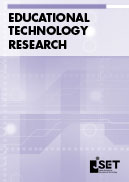Volume 18, Issue 1-2
Displaying 1-10 of 10 articles from this issue
- |<
- <
- 1
- >
- >|
-
Article type: Cover
1995Volume 18Issue 1-2 Pages Cover1-
Published: 1995
Released on J-STAGE: April 03, 2017
Download PDF (22K) -
Article type: Appendix
1995Volume 18Issue 1-2 Pages App1-
Published: 1995
Released on J-STAGE: April 03, 2017
Download PDF (32K) -
Article type: Article
1995Volume 18Issue 1-2 Pages 9-15
Published: 1995
Released on J-STAGE: April 03, 2017
Download PDF (651K) -
Article type: Article
1995Volume 18Issue 1-2 Pages 17-24
Published: 1995
Released on J-STAGE: April 03, 2017
Download PDF (866K) -
Article type: Article
1995Volume 18Issue 1-2 Pages 25-31
Published: 1995
Released on J-STAGE: April 03, 2017
Download PDF (647K) -
Article type: Index
1995Volume 18Issue 1-2 Pages 49-
Published: 1995
Released on J-STAGE: April 03, 2017
Download PDF (9K) -
Article type: Index
1995Volume 18Issue 1-2 Pages 50-51
Published: 1995
Released on J-STAGE: April 03, 2017
Download PDF (106K) -
Article type: Appendix
1995Volume 18Issue 1-2 Pages App2-
Published: 1995
Released on J-STAGE: April 03, 2017
Download PDF (49K) -
Article type: Cover
1995Volume 18Issue 1-2 Pages Cover2-
Published: 1995
Released on J-STAGE: April 03, 2017
Download PDF (22K) -
Article type: Cover
1995Volume 18Issue 1-2 Pages Cover3-
Published: 1995
Released on J-STAGE: April 03, 2017
Download PDF (22K)
- |<
- <
- 1
- >
- >|
